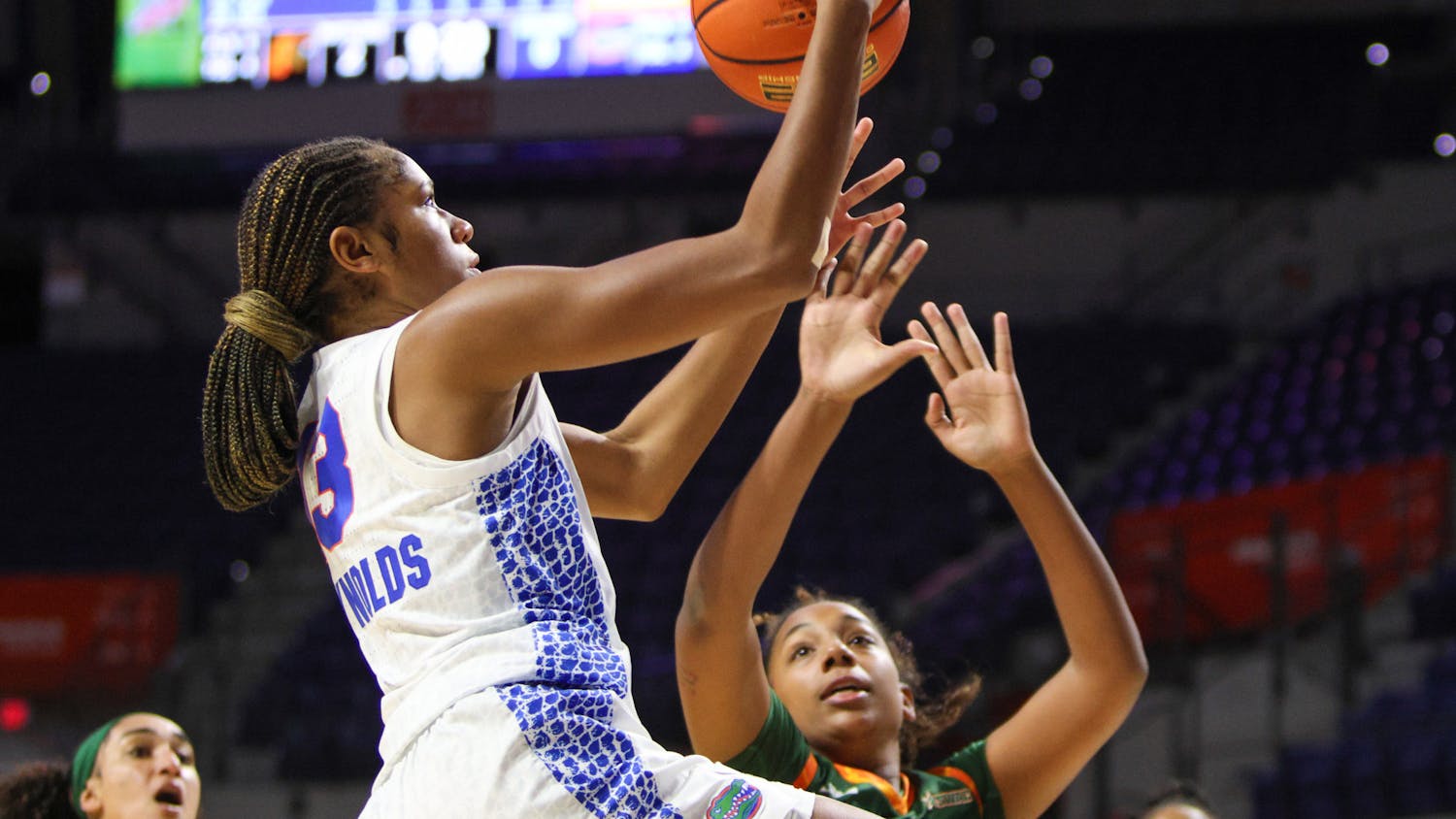OKLAHOMA CITY - "Hindsight is 50/50."
That's what a room full of reporters heard from Arizona and Team USA softball coach Mike Candrea after the Gators dominated the Wildcats in the opening round of the Women's College World Series.
There was laughter, and everyone knew what he meant, but I would argue that his statement was more of a Freudian slip than a verbal miscue.
Sure, blurry questions tend to come into focus after the fact, but many times there is no definite way to explain previous happenings.
As I watched Stacey Nelson, the most consistently dominant athlete at UF since I came to Gainesville in 2006, unravel in the final three games of the tournament, like everyone else, I was searching for answers to burning questions.
Why doesn't she look like herself?
Has she been overused?
How could this happen in the final hours of her career?
Will she get it back?
Even after the scenario played out in front of me, I find myself with no concrete answers.
I look back on the last three games of Nelson's career with the same clarity of my bedroom before I slip on my glasses in the morning.
The same pitcher who carried the Gators to a 133-10 record over the last two seasons couldn't seal the deal and go out on top.
Only three wins away from a championship, Nelson owned an impossibly low 0.39 ERA and was coming off shutouts against Arizona, the nation's best offense, and Michigan, the Big Ten champions.
She then gave up 14 runs in 16 innings against Alabama and Washington on the way to a second-place finish.
In her previous 269.1 innings this year, she allowed just 26 runners to cross home plate.
The Gators were still almost good enough to capture the Southeastern Conference's first national championship, as Ali Gardiner hit a walk-off grand slam off Alabama ace Kelsi Dunne, and the offense put seven hits and two runs on the board against WCWS Most Outstanding Player Danielle Lawrie in Tuesday's final contest.
But this was supposed to be Nelson's time.
UF wasn't supposed to have to win games 6-5 and 4-3.
The best-kept secret of the entire tournament is that Lawrie wasn't as good as advertised &ndash not even close.
Georgia scored 11 runs on the Olympian in two semifinal games, and the Gators had a lot of success in the second championship matchup.Last year in Oklahoma City, UF beat player of the year Angela Tincher, who struck out 19 Gators, and First-Team All-America pitchers Anjelica Selden and Megan Gibson.
UF has proven that it is capable of beating pitchers of Lawrie's caliber, but not without Nelson matching them pitch for pitch.
What's even more confusing is that heading into that nightmare stretch, the question appeared to be if anyone could match Nelson pitch for pitch.
The right-hander seemed to be on a level that even she had seldom tapped into over her career.
Her strikeouts were up.
Her walks were down.
She was shutting out teams with a freakish regularity, and she had the experience and poise to go all the way.
I'm not sure that anyone, including Nelson herself, can explain what transpired during the stretch run of UF's 2009 campaign.
And no amount of time away from the situation will bring that into focus.





